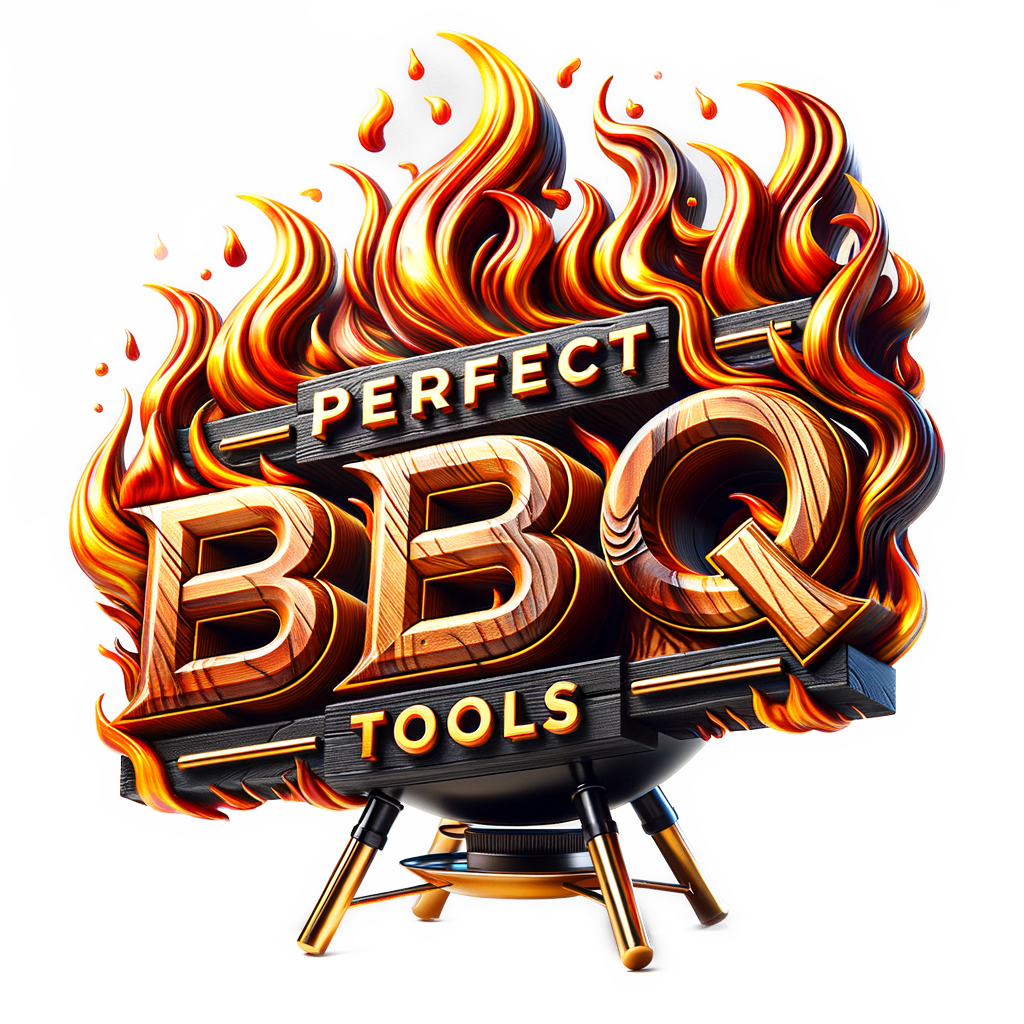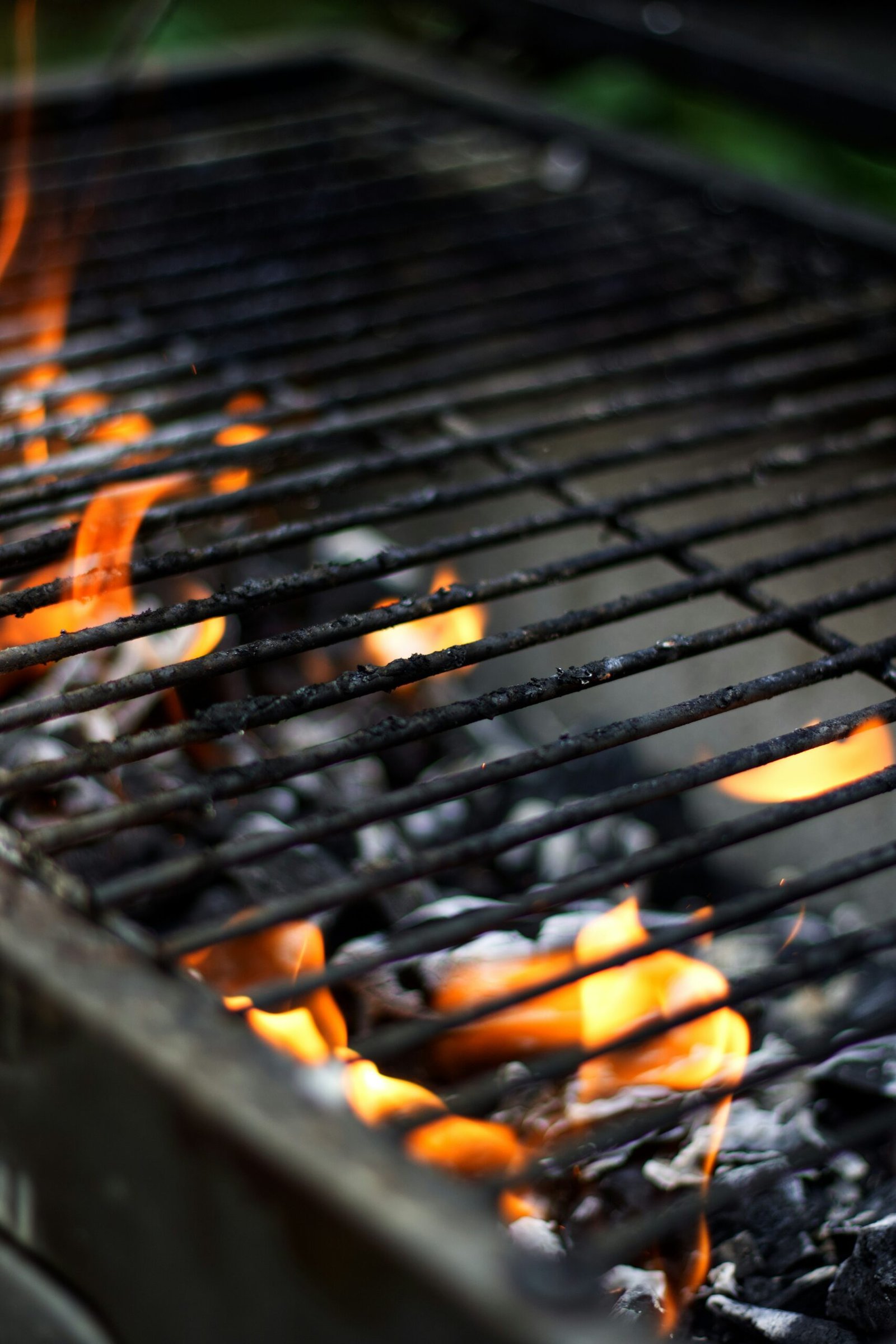Imagine standing in your backyard, smelling the delicious aroma of sizzling steaks and mouth-watering burgers, as you prepare to fire up your brand new barbeque grill. But before you start grilling, you may find yourself wondering, what is the ideal size for a barbeque grill? Whether you’re hosting a small gathering of friends or planning a big family cookout, finding the perfect size can make all the difference in creating a memorable and enjoyable grilling experience. In this article, we will explore the factors to consider when determining the ideal size for your barbeque grill, ensuring that you are well-equipped to make the best choice for your outdoor culinary adventures.
Understanding the Basics of Barbecue Grill Sizes
Difference between grill size and cooking area
When it comes to barbeque grills, it’s important to understand the difference between grill size and cooking area. Grill size refers to the overall dimensions and physical space that the grill takes up, while cooking area refers to the surface area available for grilling. The grill size will determine where the grill can be placed and how much space it will take up in your outdoor area, while the cooking area will determine how much food you can grill at one time.
Type of grills: Freestanding, portable, built-in
There are different types of grills available in the market, each with its own benefits and considerations. Freestanding grills are the most common type and can be moved around easily. They come in various sizes and configurations to suit different needs. Portable grills, on the other hand, are designed for mobility and are perfect for camping trips or tailgating. Finally, built-in grills are permanently installed in an outdoor kitchen or patio area and are often custom-made to fit seamlessly into the designated space.
Importance of considering grill size
Considering the grill size is crucial as it will determine the practicality and functionality of your outdoor cooking experience. Picking the right grill size ensures that you have enough cooking space for your needs and that the grill fits well in the available area. It also helps to determine the number of people you can cater to and the types of food you can grill efficiently. By understanding the basics of grill sizes, you can make an informed decision and find the perfect grill for your barbeque adventures.
Factors Influencing the Ideal Grill Size
Hosting capacity: number of people to cater to
When determining the ideal grill size, one of the key factors to consider is the number of people you plan to cook for regularly. If you mainly grill for yourself or small families, a smaller grill may be sufficient. However, if you often host gatherings or have a large family, it’s important to choose a grill that can accommodate a larger quantity of food at once. A larger grill with a greater cooking area will ensure that you can cook for everyone without needing multiple rounds of grilling.
Amount of space available for setup
Another important consideration is the amount of space available in your outdoor area for setting up the grill. If you have limited space, a compact or portable grill may be the best option. On the other hand, if you have a dedicated outdoor kitchen or a spacious patio, you can opt for a larger freestanding or built-in grill. Taking accurate measurements of the available space will help you choose a grill that fits perfectly while allowing for comfortable movement and accessibility.
Kind of food to be grilled
The type of food you plan to grill regularly should also be taken into account when determining the ideal grill size. If you mostly grill small items like burgers and hot dogs, a smaller grill with a smaller cooking area may be sufficient. However, if you enjoy grilling larger cuts of meat, whole chickens, or multiple dishes at once, a larger grill with more cooking space will be a better choice. Consider your cooking preferences and the variety of foods you enjoy grilling to ensure the grill can accommodate your culinary creations.
The frequency of use
The frequency at which you plan to use the grill is another factor that should influence your decision on the ideal grill size. If you are an occasional griller who only uses the grill sporadically, a smaller grill may suffice. However, if you are a passionate griller who loves to cook outdoors regularly, investing in a larger grill will ensure that you have enough space to cook multiple dishes at once and cater to all your barbeque needs. It’s important to find the right balance between the size of the grill and how often you will use it to maximize your grilling experience.
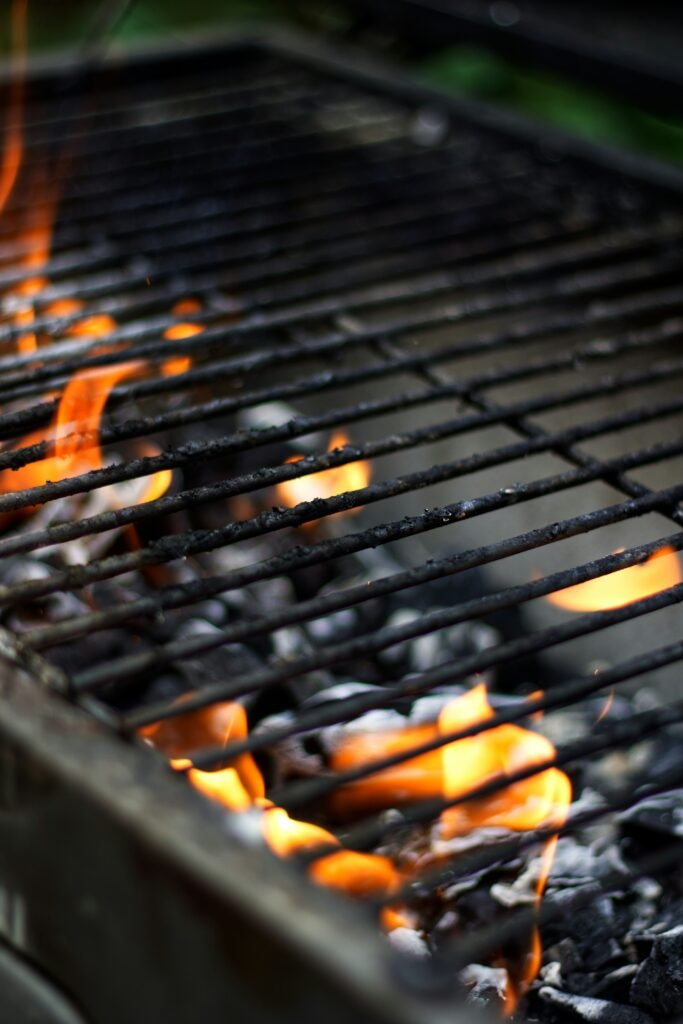
Grill Size for Individual or Small Families
Recommended grill sizes
For individuals or small families, a grill with a cooking area of around 200-400 square inches is generally sufficient. This size allows you to grill up to 10 burgers at once or a few pieces of chicken. Compact models such as tabletop grills or small freestanding grills are ideal for those with limited space. Brands like Weber and Coleman offer excellent options for small-sized grills that are durable, efficient, and easy to use.
Best grill brands for individual usage
Weber is often regarded as a top choice for individuals or small families due to their range of compact grills that offer great performance and durability. Their portable models like the Weber Q series are highly recommended for those who want a reliable grill for small-scale grilling. Coleman is another popular brand known for their portable grills, combining convenience and quality. Both Weber and Coleman offer small-sized grills that are easy to use and deliver delicious results.
Benefits of small-sized grills
Opting for a small-sized grill brings several benefits for individuals or small families. Firstly, they are more affordable compared to larger models, making them a budget-friendly choice. Small grills are also easier to clean and maintain due to their compact size. They require less fuel to operate, whether it’s charcoal, propane, or electric, resulting in cost savings. Additionally, small-sized grills are highly portable, allowing you to take them on camping trips, picnics, or simply move them around your outdoor space with ease.
Grill Size for Medium Families
Recommended grill sizes
For medium families, a grill with a cooking area of around 400-600 square inches is recommended. This size provides enough space to cook for up to 15 people, making it suitable for family gatherings or small social events. Medium-sized freestanding grills or built-in grills are popular choices for those who have a moderate amount of outdoor space. Brands like Broil King and Char-Broil offer reliable and efficient grills in the medium-sized range.
Best grill brands for medium families
Broil King is a reputable brand known for their quality grills, and they offer various models that cater to medium-sized families. Their grills are designed for optimal performance and durability, ensuring that you can enjoy grilling for years to come. Char-Broil also offers a range of reliable grills with medium-sized cooking areas. Their grills are known for their even heat distribution and user-friendly features, making them a great choice for medium-sized families.
Pros and cons of medium-sized grills
Medium-sized grills offer a balance between cooking capacity and space efficiency. They provide enough room to cook for medium-sized families or gatherings, catering to a larger number of people compared to small-sized grills. Medium grills also offer more versatility in terms of the types of food you can grill, allowing for greater variety in your barbeque menu. However, it’s important to consider the available space in your outdoor area to ensure that the grill can be comfortably accommodated without causing overcrowding or restricted movement.
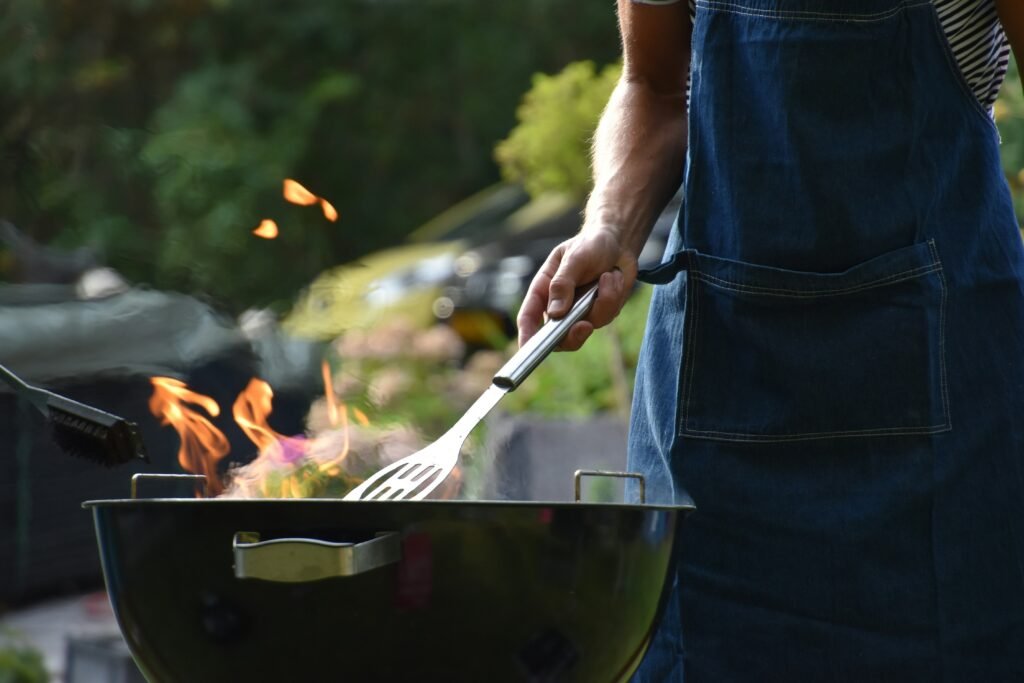
Grill Size for Large Gatherings or Functions
Recommended grill size
For large gatherings or functions, a grill with a cooking area of at least 600 square inches or more is recommended. This size will enable you to cook for a large number of guests without having to grill in batches. Large freestanding grills or built-in grills are ideal for those who have ample outdoor space and plan to entertain regularly. Brands like Napoleon and Weber offer high-quality grills that are specifically designed for large-scale grilling.
Best grill brands for large gatherings
Napoleon is renowned for their premium grills that offer exceptional performance and durability. Their large-sized grills provide ample cooking space and are equipped with advanced features to enhance your grilling experience. Weber also offers a range of reliable grills in larger sizes, ensuring that you can cook for a crowd without compromising on quality. Both brands prioritize heat distribution, control, and longevity in their large-sized grills.
Practicality of large-sized grills
Large-sized grills are a practical choice for those who frequently host large gatherings or functions. They allow you to cook a substantial amount of food at once, saving time and effort in preparing multiple rounds of grilling. With a larger cooking area, you can easily accommodate various types of dishes simultaneously, catering to different preferences and dietary restrictions. However, it’s essential to consider the available space and ensure that a large grill can be easily maneuvered and stored when not in use.
Understanding the Measurements of Grills
How grill measurements work
Grill measurements typically refer to the cooking area available on the grill surface and are expressed in square inches. The cooking area is calculated by multiplying the width by the depth of the grill grate. For example, a grill with dimensions of 20 inches by 18 inches would have a total cooking area of 360 square inches. Understanding how grill measurements work allows you to compare different models and determine which size will best suit your needs.
Determining the right size for your needs
To determine the right size grill for your needs, consider the factors discussed earlier, such as the number of people you will be cooking for, the available space, and the types of food you plan to grill. Assessing your specific requirements will help you narrow down the ideal grill size range. Remember, it’s always better to go slightly larger than you think you need to ensure you have enough cooking space, especially if you often entertain guests or have larger gatherings.
Tips for measuring grill size
When measuring grill size, it’s important to account for the primary cooking area, as well as any additional racks or warming trays, which can add to the overall cooking space. Take into consideration the dimensions of the grill both lengthwise and widthwise, ensuring that it fits well in your designated area. Additionally, consider the height of the grill, especially for built-in models, to ensure adequate clearance and ventilation. Taking accurate measurements will prevent any surprises and ensure that the grill fits perfectly in your outdoor space.
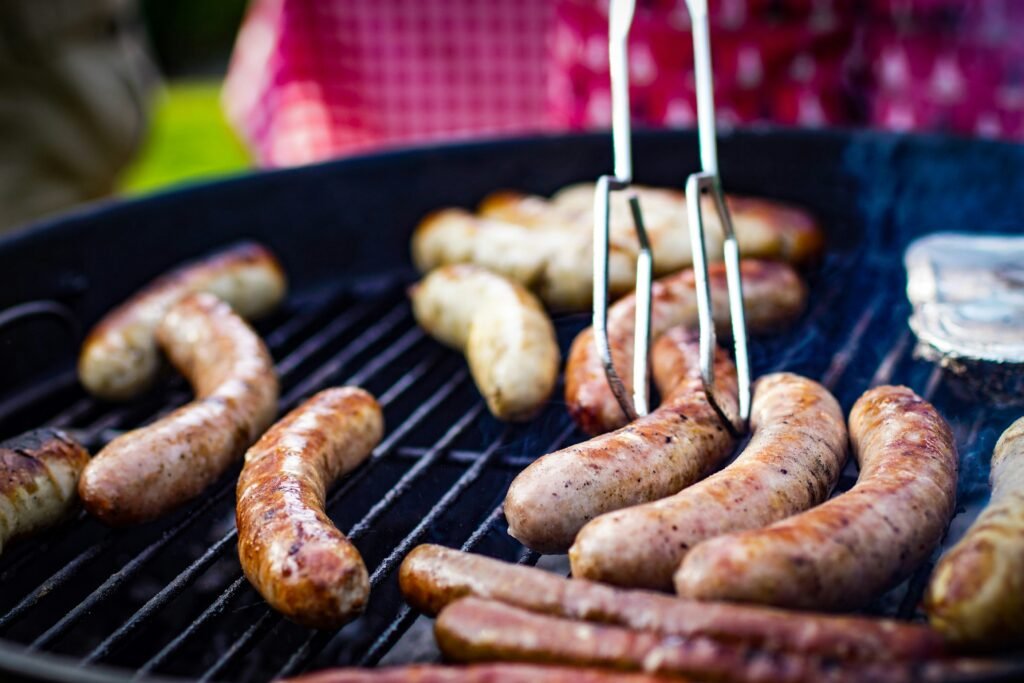
The Role of Grill Functionality Over Size
Presence of additional features
While grill size is important, it’s equally crucial to consider the functionality and features offered by the grill. Look for grills that come with additional features such as side burners, rotisserie kits, built-in thermometer, or warming racks. These features can enhance your grilling experience and provide greater versatility in cooking various types of food. Consider the specific features that would be valuable to you and select a grill that offers both the desired size and functionality.
Performance of the grill
Grill performance plays a significant role in determining the overall satisfaction of your barbeque experience. Look for grills that offer even heat distribution, allowing for consistent cooking results across the entire grilling surface. Good temperature control is also important, as it enables you to grill a wide range of foods with precision, from high-temperature searing to slow and low cooking. Research customer reviews and ratings to gain insights into the performance of different grill models before making a final decision.
Ease of maintenance and cleaning
Considering the ease of maintenance and cleaning is essential to ensure that your grill stays in optimal condition for years to come. Look for grills that have removable cooking grates, grease trays or pans, and easy access to the burners for cleaning. Stainless steel construction is often preferred, as it is durable and resistant to rust and corrosion. Additionally, check if the grill comes with a warranty, as this can provide added peace of mind in terms of maintenance and potential repairs.
Effect of Grill Size on Heating Method
Comparison between propane, charcoal, and electric grills
The choice of heating method is another important consideration when selecting a grill size. Propane grills are popular for their convenience and quick heat-up times, making them ideal for those who want an easy and efficient grilling experience. Charcoal grills offer a traditional smoky flavor and are favored by grilling enthusiasts who enjoy the process of charcoal lighting and managing the heat. Finally, electric grills are convenient for those who have restrictions on open flames or live in apartments where gas or charcoal grills may not be allowed.
Energy efficiency of different sized grills
When it comes to energy efficiency, smaller grills tend to consume less fuel compared to larger grills. This is especially true for propane and charcoal grills. Smaller grills require less fuel to heat up and maintain the desired temperature, resulting in lower energy consumption. Electric grills are generally energy efficient, but it is important to consider the wattage and power usage of the specific model you choose. Opting for a grill size that matches your cooking needs can help ensure that you minimize energy waste and reduce utility costs.
Heat distribution and control in various grill sizes
Heat distribution and control are essential for achieving perfectly cooked food on the grill. Smaller grills tend to offer more uniform heat distribution due to their compact size, allowing for consistent cooking results across the entire cooking area. However, larger grills often come equipped with advanced heat control features such as multiple burners, adjustable vents, or temperature gauges, allowing for better precision in managing heat levels. Consider your grilling preferences and the type of food you plan to cook to determine which grill size offers the ideal balance of heat distribution and control for your needs.
Financial Considerations in Choosing Grill Size
Cost comparison across different grill sizes
Grill prices can vary greatly depending on the size, brand, and additional features. Generally, smaller grills are more affordable compared to larger grills. If budget is a primary concern, opting for a smaller grill may be the most cost-effective choice without compromising on quality. However, it’s important to assess your specific requirements and balance the long-term value against the initial cost. Consider investing in a larger grill if you anticipate frequent use and have the means to do so, as it can provide greater cooking capacity and versatility in the long run.
Maintenance cost factor
In addition to the initial purchase price, it’s essential to consider the maintenance cost of the grill. Larger grills often require more fuel, whether it’s propane or charcoal, which can contribute to higher operational costs. Furthermore, larger grills may require more frequent cleaning and maintenance, which can involve additional expenses. On the other hand, smaller grills tend to be more cost-effective in terms of fuel consumption and maintenance. Factor in the ongoing costs associated with the size and type of grill you choose to ensure that it aligns with your budget.
Investment recovery consequences
Choosing the right grill size is not just about the initial cost but also the potential return on investment. Consider how often you plan to use the grill and the value it will bring to your outdoor cooking experience. If you invest in a larger grill but only use it occasionally, it may take longer to recover the cost through the enjoyment and convenience it provides. On the other hand, investing in a larger grill can be a worthwhile choice if you frequently entertain guests or host gatherings, as it allows you to maximize the grilling experience and cater to a larger number of people.
Making the Final Decision on Grill Size
Weighing all considerations
Selecting the ideal grill size requires carefully considering all the factors discussed above. Take into account the number of people you regularly cook for, the available space in your outdoor area, the types of food you enjoy grilling, and how often you will use the grill. Assess your budget, long-term needs, and preferences to make an informed decision. By weighing all considerations, you can find the perfect grill size that meets your requirements and ensures a delightful barbeque experience.
Where to purchase the ideal grill
When it comes to purchasing your ideal grill, there are several options available. Local home improvement stores, outdoor specialty stores, and barbecue supply stores often carry a wide range of grills in different sizes. You can also consider online retailers, as they offer a convenient way to compare prices, read customer reviews, and access a broader selection of grill models. Don’t forget to visit manufacturer websites to learn more about specific brands and their offerings. Additionally, consulting with grill enthusiasts or seeking recommendations from friends and family can provide valuable insights in making the final purchasing decision.
Tips for long-lasting grill maintenance
Once you have chosen and purchased your ideal grill, proper maintenance is essential to ensure its longevity and optimal performance. Regularly clean the grill grates, remove grease buildup, and check for any signs of rust or corrosion. Store the grill in a dry area or invest in a grill cover to protect it from the elements. Follow the manufacturer’s guidelines for maintenance and follow their recommendations for replacement parts or repairs. By practicing good grill maintenance habits, you can enjoy your grill for years to come and make the most of your barbeque adventures.
